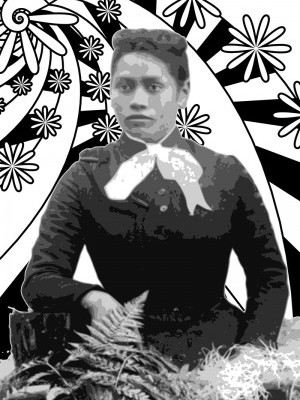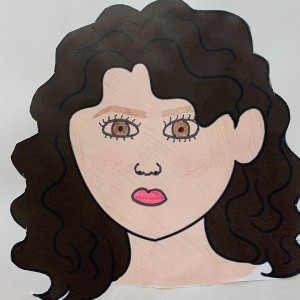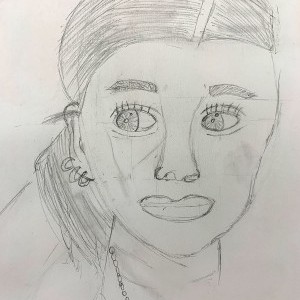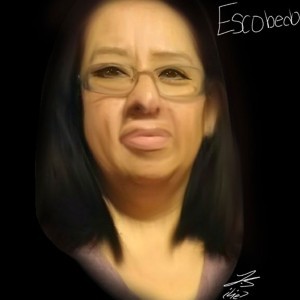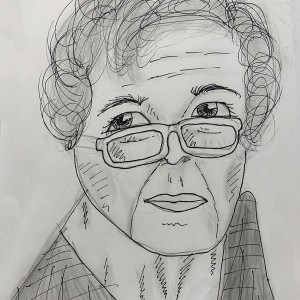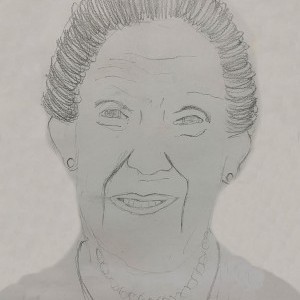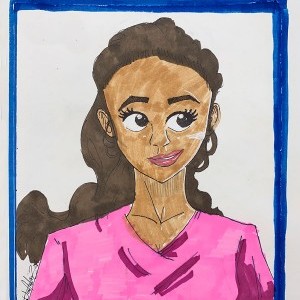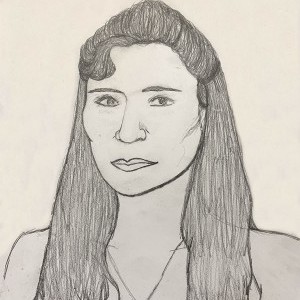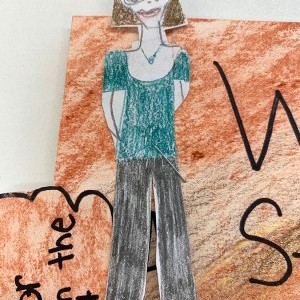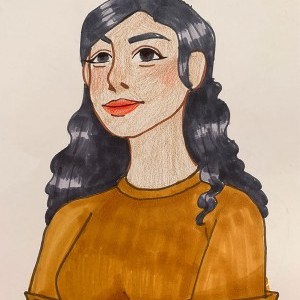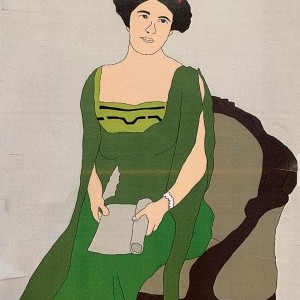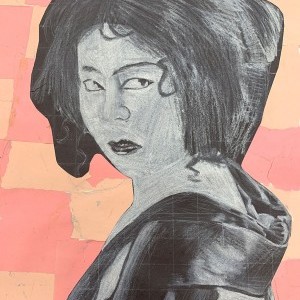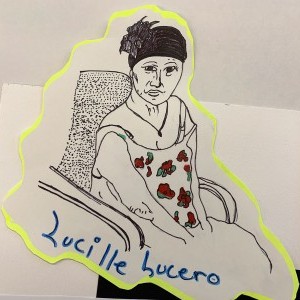David Meraz
Kunsmiller Creative Arts Academy | Denver, CO | 11th Grade
Inspirational Family Member
My Mom
My mom was born on October 23, 1982, to a Chicano father and a Mexican immigrant mother. Her parents divorced when she was only eight years old, and she did not pursue higher education. Although she wasn’t the first girl born within her generation inside my family, she would grow up to be the first to exercise her right to vote eighteen years later. Ever since she cast her first ballot, my mom has held the view that voting is important, reasoning that voting is your right and is your voice. My mom was shaped by her experiences growing up, and by extension, her political positions.
The political environment around the time that my mom began exercising her right to vote was divided, much like the political environment we have today. The first presidential election she voted in, which was the Gore/Bush election, polarized the country amidst allegations of voter fraud in a time where the Internet wasn’t as widespread as it is today. It didn’t help that my mom also happened to be confused by the voting process she had to go through during that election. Less than a year later, politics were set aside as the country united around the War on Terror after 9/11, a unity that remains unmatched to this day. Her overall experience voting is a unique one that I cannot replicate.
Having worked within a VSPC [Voter Service and Polling Center] in my community during an election, I understand how much has changed in the voting process since her time. Nowadays, voters are presented with the option of receiving a ballot in the mail as well as using electronic voting systems. However, I feel that I cannot relate any further to my mom’s experience as a voter. I have yet to vote in an actual election, and I cannot completely replicate her experience as I’ve said before. Nonetheless, the story of my mom and her experience voting is an interesting and unique one.
Historical Figure I Admire
Meri Mangakāhia
Meri Mangakāhia was an indigenous Māori suffragist who advocated for the fair representation of women within the native Māori parliament as demonstrated by her address to the Māori parliament in 1893, “Perhaps the Queen may listen to the petitions if they are presented by her Māori sisters, since she is a woman as well.”
Mangakāhia was born in 1868 to the Te Rarawa Iwi (Indigenous Nation), and she grew up well educated. Her husband, Hāmiora Mangakāhia, initiated a movement for an independent Māori parliament in 1892. One year later, Meri delivered an address to this parliament where she not only advocated for women’s suffrage within this legislative body, but she also advocated for the right of women to sit in the parliament itself. Although women’s suffrage was achieved in this parliament in 1897, she disappeared from public affairs permanently afterward and maintained a low profile until her death in 1920.
Meri Mangakāhia lived in a different world compared to the world we live in today, most notably, one without universal suffrage. At the time, the indigenous populations of New Zealand, the Māori, were demanding the greater representation promised to them by the British colonial authorities through the 1840 Treaty of Waitangi. The Māori representative movement was beginning to grow at the time, creating a fertile ground for Māori women to begin a campaign for their own representation. Concurrently, the New Zealand Women’s Christian Temperance Union was beginning to advocate for those same principles for women in New Zealand.
The demand for reform was growing. Meri Mangakāhia advocated for female suffrage within the Māori parliament. By extension, she also advocated for the right for women to sit in the Māori parliament. In 1893, her work culminated in an address advancing these causes to the Māori parliament. Meri Mangakāhia was motivated by her contact with the Women’s Christian Temperance Union, which advocated for female suffrage, to join and publicize the women’s committees of the Māori parliament. Her work in the women’s committees of the Māori parliament inspired the eventual creation of the Māori Women’s Welfare League. However, Meri Mangakāhia was unaware of her role model status or the fact that she would pave the way for generations to come because not much material about her was written during her time. Therefore, she sacrificed her voice to move forward the cause of women’s suffrage in the Māori parliament.
Meri Mangakāhia served as a suffragist role model for the Māori people of New Zealand. With greater awareness of her activism in her own lifetime, she might have achieved greater recognition as a role model for minority and indigenous women today.
What the Project Means to Me
As my mother said to me today, “voting is very important, it’s your right and your voice.” She said this as we were talking about the importance of voting during an interview, which matters to her, as she was the first woman to vote in our family. I conducted this interview to connect her story regarding voting to the overall history of women’s suffrage. Throughout the interview, we spoke about her early voting experiences, the voting process, as well as some alternate history scenarios regarding universal suffrage. In total, the interview spanned seven topics regarding the right to vote and the voting process.
The difference between the world when she first exercised the right to vote and the world today was one of the first contrasts to emerge throughout the interview. While the partisan division of her era persists, she also experienced the near-unison effect that 9/11 had on the political atmosphere. In regards to the voting process, my mother was only given the choice of voting in person on a ballot, a stark contrast from the mail-in ballots and electronic voting systems in place as alternatives today. Regarding alternate history, she stated that universal suffrage would’ve been much harder to achieve in today’s world given the influences we have today. We concluded that the voting process and the political environment surrounding it have changed throughout the first two decades of this century alone.
As my mother said during the interview, “talk to others because it’s good to hear other people’s views.” To me, having interviewed my mother and written her story shed light on a new perspective on the right to vote and the voting process. It also opened my eyes to how it’s like to vote without prior familial influence. This independence that my mom demonstrates was an influential concept in the women’s suffrage movement, while also being a key element regarding individual voters. Therefore, it is important to recognize our connections to the prior movement and be grateful for its achievements.
Explore the Archive
More From This Class
Click on the thumbnails below to view each student's work.Deadline Extended
There's still time to join Women Leading the Way.
Become a part of our storytelling archive. Enroll your class today.
Join the Project


